Heroin sold as ketamine in Auckland region
-
Notification
-
Opioids
-
- Auckland
Heroin has been found in a white powder that was sold as ketamine in the Auckland region.
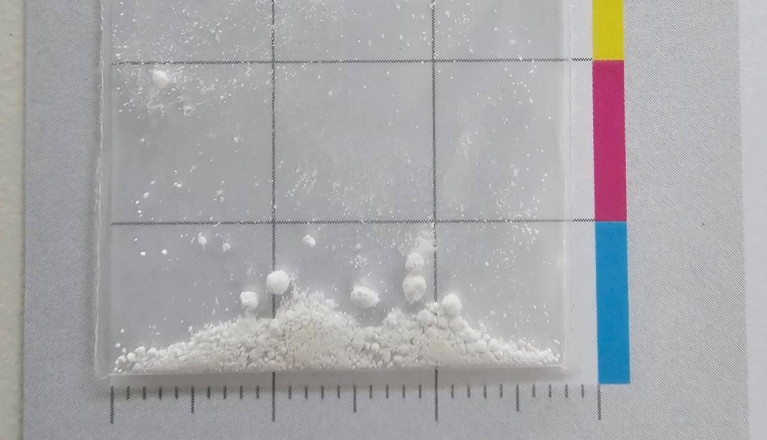
How to identify the drug
- White powder
This notification is to let you know that heroin has been found in a white powder that was sold as ketamine in the Auckland region. People who consume this powder thinking it's ketamine are at high risk of experiencing serious harm, including death.
It is believed this powder is present in Auckland and possibly other regions. The concern is that this substance may continue to be sold as ketamine. It's important to never assume that what you have is the same as what you are being told it is. Misrepresentation can occur anywhere along the supply chain.
High Alert urges extreme caution should you choose to take white powders and testing is recommended to help minimise the risk. Drug checking services can identify when a substance isn't what it's been sold as - find upcoming clinics at The Level. It's free, legal and confidential.
If you or someone you know take this substance and start to lose consciousness or breathe slowly, call 111 immediately. Tell them what you think has been taken and that it could be an opioid overdose.
Naloxone can be used to help reverse an opioid overdose. Given the potency and duration of effect, any person administered naloxone should continue to be monitored for at least 2 hours and followed up by medical services.
If you have heard of any reports of this drug, please let us know! The alert ID is N23/0039. All submissions are anonymous.
How to recognise the drug
A sample of this substance was brought into a drug checking clinic in Auckland. Preliminary testing by the New Zealand Drug Foundation indicated the presence of heroin and no ketamine. This was confirmed by further analysis conducted by the Institute of Environmental Science and Research (ESR).
As seen in the image, the substance is a white powder that was sold as ketamine in the Auckland region. This substance may also possibly be available in other regions.
Ketamine and heroin come from different classes of drugs and produce different effects. While ketamine is a dissociative, heroin is a potent opioid and central nervous system depressant. A typical dose of heroin is smaller than a typical dose of ketamine, meaning that a person taking this substance thinking it is ketamine may inadvertently take multiple doses of heroin, increasing the risk of serious harm, including death.
The effects of heroin include:
- Feeling euphoric or in a ‘dreamlike’ state.
- Sedation (‘the nod’ – being drowsy and then jerking awake).
- Temporary relief of pain, stress, or low mood.
- Severe nausea and/or vomiting.
- Severe sweating or fever.
- Slowed and/or difficulty breathing.
- Blue lips and/or fingertips.
- Cold and clammy skin.
- Pinpoint (tiny) pupils.
- Becoming unresponsive and/or losing consciousness.
How to reduce harm from the drug
High Alert urges extreme caution should you choose to use white powders. Drug checking is recommended to help minimise the risk. KnowYourStuffNZ, the New Zealand Drug Foundation and the New Zealand Needle Exchange Programme are running regular drug checking clinics. Information on upcoming clinics, including those coming up in the Wellington region, can be found on The Level.
If you choose to use this substance:
- Drug checking services can tell you when a substance is not what it's been sold as. Find upcoming clinics at The Level.
- Use a reagent test to check it first. Morris reagent will turn purple if ketamine is present and will not change colour if there is only heroin.
- Avoid using alone. Have a buddy who can help, and call an ambulance, if things go wrong.
- Start off with a smaller or ‘tester’ dose to check how it affects you. In general, swallowing a substance has a slower onset than other methods and means there might be more time to get medical help if needed.
- Avoid using it at the same time as other substances, especially other depressant drugs such as alcohol, opioids, GHB/GBL, ketamine, and benzodiazepines, as these can increase the sedative effects of opioids (for example, slowing or stopping breathing).
- Have naloxone with you – a drug that can temporarily reverse the effects of an opioid overdose and give you more time to get medical help. Talk to your GP about this. Some pharmacies and needle exchanges stock naloxone and the Nyxoid nasal spray can also be purchased direct from the ‘Pharmaco Emergency Care’ website. Remember, opioids can be fast acting and you may not initially realise you require naloxone. Even if you have naloxone on hand, you may not be able to administer it by yourself. Avoid using alone. Have someone with you who is familiar with and can administer naloxone if needed.
Call 111 and ask for an ambulance immediately if you or someone else has any of the below signs after taking this substance. Tell them what has been taken and that it could be an opioid, it could save a life. Don’t leave the person alone and treat it as an overdose if unsure.
The signs of an opioid overdose include:
- The person's face is extremely pale and/or feels clammy to the touch.
- Their body goes limp.
- Their fingernails and/or lips have a purple or blue colour.
- They start vomiting or making gurgling noises.
- They cannot be awakened or are unable to speak.
- Their pupils become very small.
- Their breathing and/or heartbeat slows or stops.
If you have heard of any reports of this drug, please let us know through the Report unusual effects page, the alert ID is N23/039. All submissions are anonymous.
Stay safer by staying informed. Sign up to receive alerts and notifications about any dangerous drugs in NZ. Check out the alerts page to see what we've already found.
The National Poisons Centre is available 24/7 to help members of the public and healthcare professionals with clinical advice for exposures to this, or any other substance - please call 0800 764 766 (0800 POISON).
Are you concerned about your own drinking or drug taking? Reach out to the Alcohol Drug Helpline on 0800 787 797, or text 8681. You'll be able to speak with a trained counsellor who can provide you with helpful information, insight and support. They’re available 24/7, all calls are free and confidential.
You can also chat to the Alcohol Drug Helpline team online through the website, or:
- Call the Māori Line on 0800 787 798 for advice and referral to kaupapa Māori services.
- Call the Pasifika Line on 0800 787 799 for advice and referral to services developed for Pacific people.
- Call the Youth Line on 0800 787 984 for advice and referral to services for young people.
Latest Alerts & Notifications
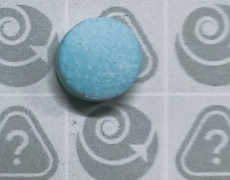
Highly potent synthetic opioid detected in fake diazepam tablet
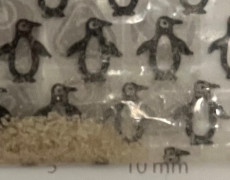
Alpha-PVP like substance misrepresented as MDMA in Christchurch
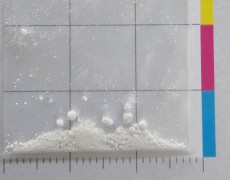
Heroin sold as ketamine in Auckland region
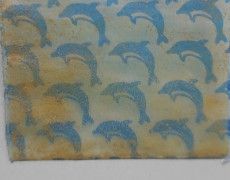
Highly potent synthetic opioid misrepresented as butonitazene

